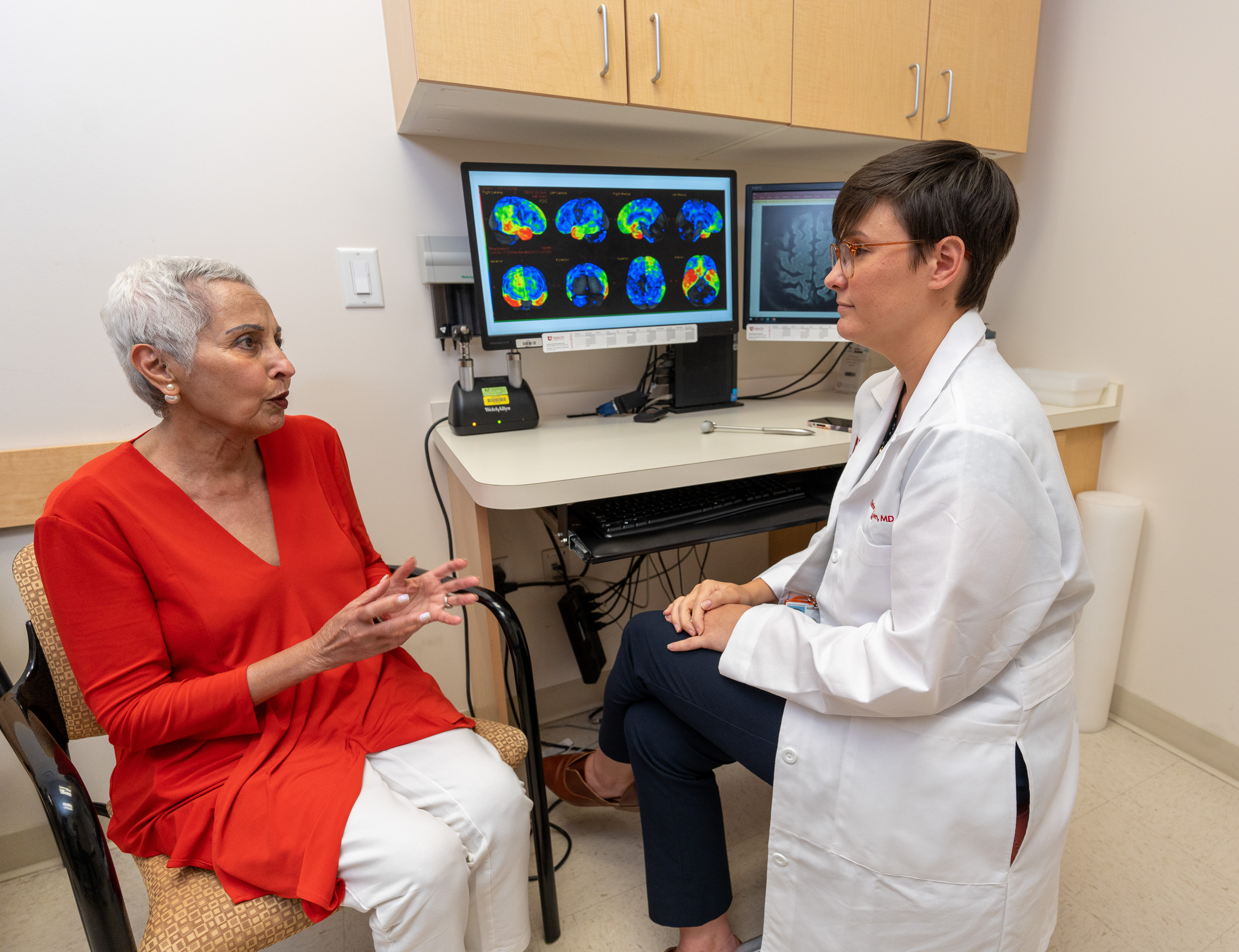
Evidence-Based Medicine for Better, More Equitable Care
Recently, a patient came to Kira C. Watson, MD, MPH, primary care provider at University of Utah Health’s Sugar House Health Center, with multiple concerns, including insomnia, fatigue, chronic back pain, migraines, tingling legs, and others. While she said nothing about being depressed, because of new guidelines at the hospital, Watson screened the patient for depression. It turned out the condition was the root cause of most of the patient’s symptoms.
“Following therapy and other medical interventions for depression, this patient’s fatigue and insomnia quickly got better, and with more rest, her other pain-related symptoms subsided as well,” says Watson, who also serves as the quality improvement director for U of U Health’s Division of General Internal Medicine.
The new depression screening guidelines are part of U of U Health’s embrace of evidence-based medicine, which involves integrating clinical expertise, patient values and preferences, and the most current, valid, and relevant research evidence. Under this approach to patient care, clinicians provide recommendations for treatments and interventions, preventive medicine, and guidance against procedures that haven’t been thoroughly vetted as being useful for patients who are part of certain populations. The ultimate goal is improving care and saving patients time and money.

“Medicine is an ever-evolving practice and needs to adapt based on what literature comes out and how we can apply it,” Watson says.
For example, a doctor seeing a 45-year-old woman during a routine annual physical may use evidence-based medicine to recommend colon cancer screening. Such screening can catch the disease in its early stages when it’s relatively simple to treat. Alternatively, a 65-year-old man coming in for his physical may have seen a discussion on social media about an imaging test for heart disease that would be an out-of-pocket expense. He and his doctor could then discuss the evidence underlying the use of the test and the doctor can explain why it’s not recommended for him and would represent an unnecessary expense with little or no value to the patient.

"Medicine is an ever-evolving practice and needs to adapt based on what literature comes out and how we can apply it."
The main benefit of evidence-based medicine is providing health care professionals with a structured and systematic approach to decision-making.
“Standardizing how we deliver care creates more equity,” Watson says. “Everyone gets the same care based on what we know. When you come in for a physical, we go through all age-appropriate cancer screenings, vaccines, and several other things that are recommended and talk about the benefits.”
What is evidence-based medicine?
The practice of evidence-based medicine involves several steps:
- Formulating a clinical question: This involves identifying a specific clinical issue or problem requiring an evidence-based approach.
- Searching for the evidence: Health care professionals conduct a comprehensive medical literature search to identify relevant research studies and evidence that address the clinical question.
- Critically appraising the evidence: The identified research studies are evaluated for their quality, validity, and relevance to the clinical question. This assessment involves considering factors such as study design, sample size, methodology, and potential sources of bias.
- Applying the evidence: The findings from the critically appraised evidence are then integrated with the health care professional’s clinical expertise and the patient’s values and preferences.
- Evaluating outcomes: The outcome of the decision or intervention is monitored and assessed, allowing for further refinement of the approach and implementation of new evidence as it becomes available.
By following these steps, evidence-based medicine ensures that clinical decisions are based on the best available evidence, rather than relying solely on tradition, anecdotal experience, or the opinion of a single expert.
“Departments throughout U of U meet for journal clubs and we talk about new studies and new information so that we are all collectively on the same page in making the informed decisions for our patient populations based on the best evidence out there,” Watson says. Because health care providers at U of U Health are amongst the best in their fields, they have the expertise to stay on top of the latest advances and implement them.

Over the past couple of years, U of U Health has folded new U.S. Preventive Services Task Force and Centers for Disease Control and Prevention guidelines for colon cancer screening, pneumonia, and blood pressure monitoring into its evidence-based medicine regime. In addition to depression screening, these recommendations and others are visible to both clinicians and patients via the hospital’s electronic health record system. Taking these measures ensures that patients benefit from the latest advances that science and medicine has to offer.
“I really like when patients come in with topics they want to talk about, whether it’s something they saw on Facebook or heard a neighbor talk about,” Watson says. “And then, using evidence-based medicine, we can make decisions together that are just right for them.”